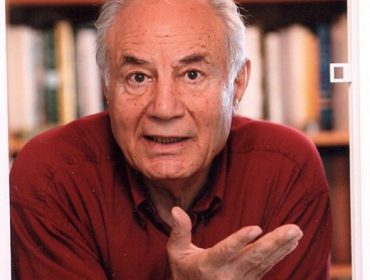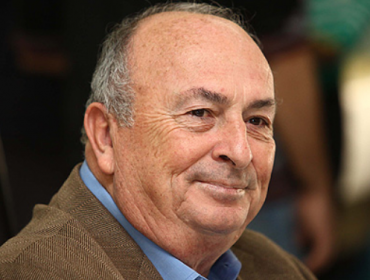During March 2021, the 6th Kinneret Conference on Education, Academia and the Periphery was held. Topics included virtual and physical communities, sustainability, water, community forestry, environment and climate. In addition, honorary college awards were presented to author Eli Amir, former chairman of the Rashi Foundation, Eli Alaluf, and Prof. Zeev (Zevik) Drori. The conference was held in collaboration with the Keren Kayemeth LeIsrael – Jewish National Fund (KKL-JNF), and was broadcast live throughout the three days.
This year, in light of the COVID pandemic, Kinneret Academic College chose to place emphasis on and engage in the following topics: Virtual communities, hybrid approaches to community development and their expression in the days during COVID, geographical and social periphery in Israel, litter in forests and nature and solutions for the existential future, capabilities necessary for the 21st century, role communities play in government, environmental issues, quality of life, sustainability, community forests, a kibbutz community on a daily basis and during times of crises, and the connection between community, kibbutz and city.
The conference was attended by experts from academia, researchers, KKL-JNF staff, environmental activists, as well as senior figures in communities and society, including: Prof. Yoram Yuval, who presented how to live a better life alongside COVID, environmentalist and Galgalatz broadcaster, Aviv Lavi, who, among other things, reviewed the various parties’ views on the issue of the upcoming 24th Knesset elections, Maayan Sarig, VP of Communications and Communities for Facebook Israel, who spoke on the topic of virtual communities, Prof. Sheizaf Rafaeli, President of Shenkar College, on the dangers inherent in virtual space, Dr. Doron Merkel, KKL-JNF Chief Scientist, Anat Gold, Director of the KKL-JNF Planning Division, Dr. Roi Tzzena, Prof. Ofira Ayalon, Prof. Sibylle Heilbrunn, and others.
This year, as in previous years, we bestowed three honorary awards for notable personages. This year, the awards were presented to author Eli Amir, Eli Alaluf, former chairman of the Rashi Foundation, and Prof. Zeev (Zevik) Drori.
Another exciting and important event that took place during the third day of the conference was the announcement of the winners of the prestigious ISDG program. The ISDG program, Israel Sustainable Development Goals, is the Israeli program for the implementation of the UN’s sustainable development goals, for youth, a unique program of the KKL-JNF in cooperation with the Ministry of Foreign Affairs and the Ministry of Education. The program was established to connect youth in Israel to international efforts to achieve UN targets for 2030, thereby assisting the entire world in tackling the challenges facing humanity as a whole.
The winning groups were from the following schools: Herzog Branco-Weiss High School; Eshkol Pais Center for Arts & Sciences, Ohel Shem High School, Ramat Gan; and Midrashiat Amit Kama, Yeruham.
Prof. Shimon Gepstein, President of Kinneret Academic College: “The COVID pandemic has brought with it social and technological changes that have greatly affected physical and virtual communities. As a society, we have learned, over the past year in particular, to internalize the changes and adapt to the realities of the 21st century. Kinneret Academic College has invested many resources in academia and the changing world, by updating curricula and innovative learning environments. The Kinneret Innovation Center (KIC) operates at the college campus, and this year we also devoted the college’s annual conference to this subject, and will continue to invest in these topics with our dear partners at KKL-JNF.” (From his address at the 6th Kinneret Conference on Education, Academia and the Periphery)
Chairman of KKL-JNF, Avraham Duvdevani: “We are pleased and proud to have participated in the 6th Kinneret Conference, and to promote important issues such as sustainability, water, community forestry, and also the issue of climate. These issues express the essence of KKL-JNF according to the agreement it has with the Israeli government since the establishment of the State of Israel. Transform the landscape, and plant the country with trees – KKL-JNF has planted more than 250 million trees. The first tree planted by Keren Kayemeth LeIsrael is the olive tree that was chosen on Tu B’Shvat as the national tree. The olive tree is a source of oil and also symbolizes the eternity of the State of Israel.”



